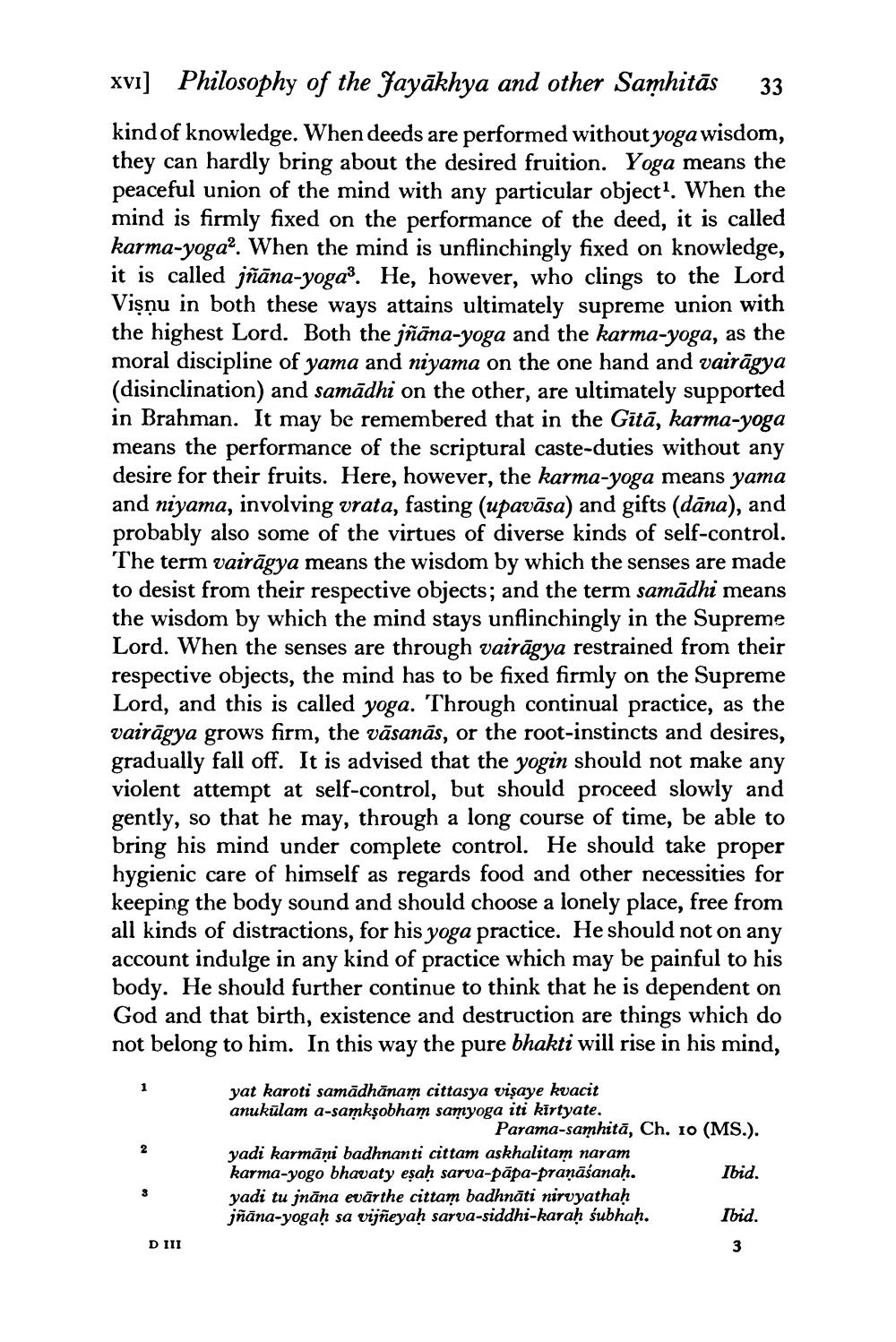________________
Xvi] Philosophy of the Jayākhya and other Samhitās 33 kind of knowledge. When deeds are performed without yoga wisdom, they can hardly bring about the desired fruition. Yoga means the peaceful union of the mind with any particular object!. When the mind is firmly fixed on the performance of the deed, it is called karma-yoga?. When the mind is unflinchingly fixed on knowledge, it is called jñāna-yoga?. He, however, who clings to the Lord Vişnu in both these ways attains ultimately supreme union with the highest Lord. Both the jñāna-yoga and the karma-yoga, as the moral discipline of yama and niyama on the one hand and vairāgya (disinclination) and samādhi on the other, are ultimately supported in Brahman. It may be remembered that in the Gītā, karma-yoga means the performance of the scriptural caste-duties without any desire for their fruits. Here, however, the karma-yoga means yama and niyama, involving vrata, fasting (upavāsa) and gifts (dāna), and probably also some of the virtues of diverse kinds of self-control. The term vairāgya means the wisdom by which the senses are made to desist from their respective objects; and the term samādhi means the wisdom by which the mind stays unflinchingly in the Supreme Lord. When the senses are through vairāgya restrained from their respective objects, the mind has to be fixed firmly on the Supreme Lord, and this is called yoga. Through continual practice, as the vairāgya grows firm, the vāsanās, or the root-instincts and desires, gradually fall off. It is advised that the yogin should not make any violent attempt at self-control, but should proceed slowly and gently, so that he may, through a long course of time, be able to bring his mind under complete control. He should take proper hygienic care of himself as regards food and other necessities for keeping the body sound and should choose a lonely place, free from all kinds of distractions, for his yoga practice. He should not on any account indulge in any kind of practice which may be painful to his body. He should further continue to think that he is dependent on God and that birth, existence and destruction are things which do not belong to him. In this way the pure bhakti will rise in his mind,
yat karoti samādhānam cittasya vişaye kvacit anukulam a-samkşobham samyoga iti kirtyate.
Parama-samhitā, Ch. 10 (MS.). yadi karmāni badhnanti cittam askhalitam naram karma-yogo bhavaty esaḥ sarva-pāpa-pranāšanaḥ. Ibid. yadi tu jnāna evārthe cittam badhnāti nirvyathaḥ jñāna-yogah sa vijñeyah sarva-siddhi-karaḥ śubhah.
Ibid.
DIII




